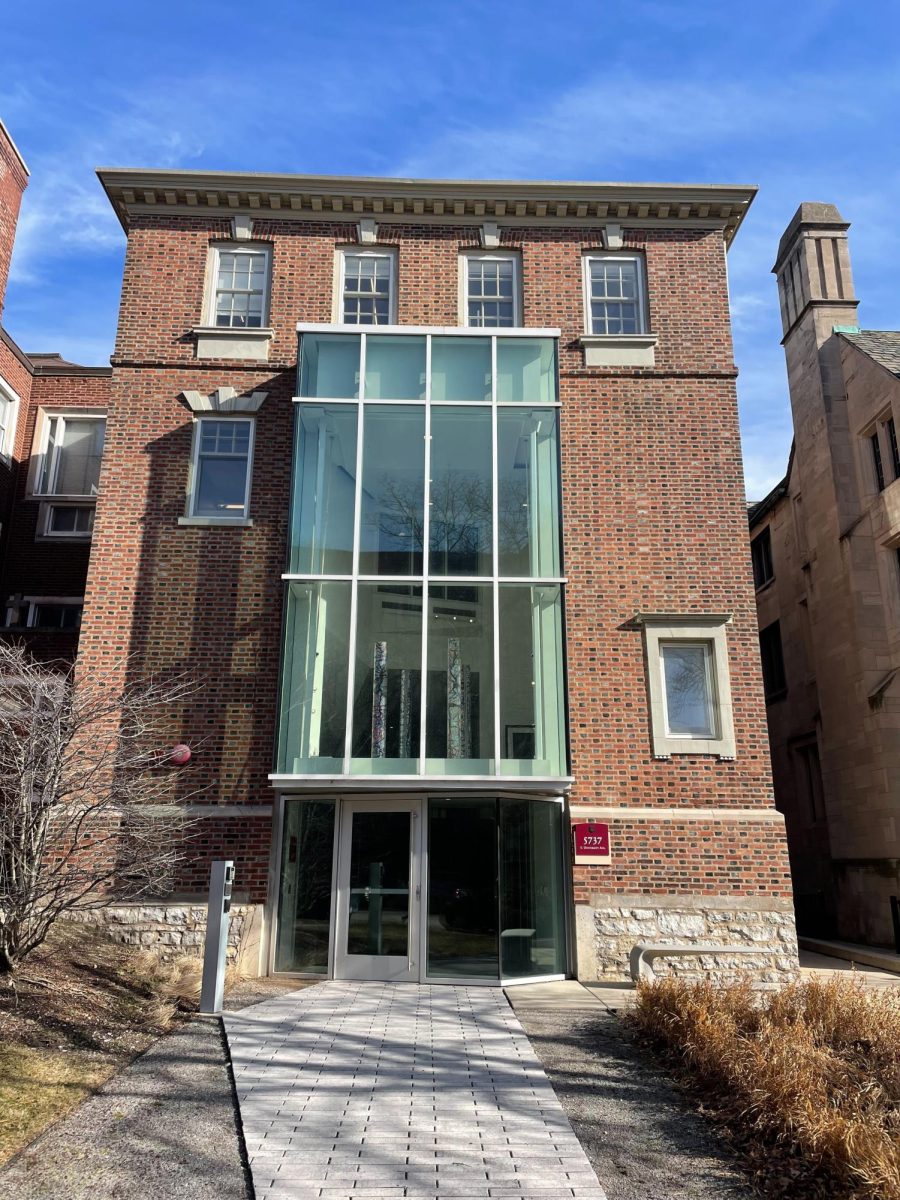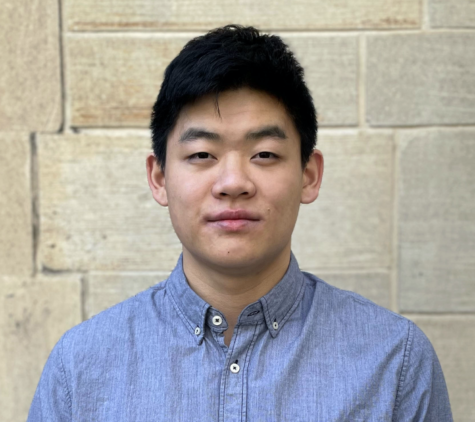The Institute on the Formation of Knowledge (IFK), the University’s interdisciplinary center for the study of knowledge, is shutting down, according to its director, Shadi Bartsch-Zimmer.
However, despite Bartsch-Zimmer announcing the closure to employees of the IFK and on the social media platform X on Tuesday, the University declined to confirm whether the Institute was being shut down.
“Today I learned that the University of Chicago is shutting down the Institute on the Formation of Knowledge for budgetary reasons. I’m so sad for all the people who will be impacted by this,” read Bartsch-Zimmer’s post on X.
Bartsch-Zimmer, who is also the Helen A. Regenstein Distinguished Service Professor of Classics and the Program in Gender Studies, told The Maroon over email that she first learned of the IFK’s closure during a meeting with University Provost Katherine Baicker on Tuesday, February 6.
“She called me to her office saying she wished to discuss budget cuts and the replacement for our Executive Director, who was hired by [President Alivisatos’s] new climate engineering initiative. I was looking forward to telling her about the possibility of a merger between IFK and [the Committee on the Conceptual and Historical Studies of Science (CHSS)] that would save the University money. I had no idea she planned to tell me IFK was being shut down,” Bartsch-Zimmer wrote.
Bartsch-Zimmer also claims that Baicker told her there would only be funding for the initiatives the President wanted to support under the University’s current budget constraints.
In a recent budget town hall hosted by the University, Provost Katherine Baicker told faculty members that the current plan to address the deficit was focused on moderating spending growth while increasing revenue.
As of 6 p.m. on Thursday, Bartsch-Zimmer told The Maroon that she had received no answers to her questions from the administration.
In response to a set of questions from The Maroon, which included a request to confirm Bartsch-Zimmer’s claims or give a reason for the shutdown, a University spokesperson declined to confirm the shutdown.
“Thoughtful conversations are ongoing with many University offices, academic leaders, and faculty members with the goal of stewarding our resources to advance our mission,” the spokesperson said. “One way our university remains vibrant and healthy is by using centrally-held seed resources to launch new programs, centers, and institutes. Part of doing this responsibly requires periodically taking stock of such programs, assessing ongoing activities, and empowering the expertise of divisional and departmental faculty. Decisions will be the result of deliberate engagement with program and academic leaders. Discussions that will impact the coming academic years are underway.”
Bartsch-Zimmer told The Maroon over email that she is a prolific fundraiser and has raised $10 million specifically for the McKeon Center, an initiative housed within the IFK whose funds are not able to be shared with the broader IFK.
Two $15 million pledges from donors that were earmarked for the IFK did not come to fruition, in part due to the scandal surrounding unfulfilled pledges made by former trustee Steve Stevanovich. Beyond that, Bartsch-Zimmer wrote that the IFK receives an annual $175k from donors.
Status of IFK staff, faculty, and researchers
The IFK opened in the fall of 2015 as an interdisciplinary center focused on the study of knowledge production and formation. Listed on the IFK’s website as a guiding question for its scholars is “What do we know?”
In its nine years of operation, the IFK grew to include around 40 scholars from the University across 11 of its 12 schools and divisions. Additionally, the IFK offered postdoctoral positions, faculty and graduate fellowships, visiting professorships, and an undergraduate thesis prize.
As of February 7, the IFK’s website listed ten current fellows and affiliates, seven postdoctoral researchers at the rank of instructor, fifty core faculty members, and nine administrative staff.
Faculty members who are affiliated with the IFK “will lose a community, research grants, our heavily attended workshops, and conference support,” said Bartsch-Zimmer, but their positions within their home departments and their salaries will not change.
According to Bartsch-Zimmer, the IFK’s administrative staff will lose their positions.
Bartsch-Zimmer noted that it’s unclear what support the IFK’s postdoctoral researchers will receive from the University, or whether Master of Arts Program in the Social Sciences (MAPSS) students pursuing the Formation of Knowledge certificates will receive their certificates upon graduation.
Though Bartsch-Zimmer informed faculty members of the closure on Tuesday evening before posting about it on X, postdoctoral researchers were notified of the IFK’s closure on Wednesday via an email from IFK operations manager Stefanie Rothman White.
“I was hoping to get details on timing before reaching out to you. Please forgive me for not speaking with each of you yesterday to share this devastating news,” one paragraph in Rothman White’s email read.
According to a postdoctoral researcher with knowledge of the situation, the rest of the current academic year will proceed as planned. The same postdoctoral researcher told The Maroon that Rothman White will meet with members of the Office of the Provost on Friday to learn more about the timeline of the institute’s shutdown and what transitional support postdoctoral researchers can expect.
Kristine Palmieri, a postdoctoral researcher at the rank of instructor with the IFK, told The Maroon that the abrupt nature of the announcement has left her in limbo. Currently in her second year of a two-year fellowship, Palmieri explained that she was eligible for a renewal of her fellowship for a third year at the IFK, contingent on positive reviews. That extension would have kept her employed through July 2025.
“There’s no possibility for us to find anything for the next academic year because all the deadlines are over. Presumably the University knows this. They could have told us in the fall,” Palmieri said, explaining that most academic jobs conduct their hiring processes then.
“I personally did not apply to a number of positions because I thought that my time and energy were better spent on my research and publications,” she said. “To me, that’s what is most egregious, because the other [second-year] postdoc and I are looking at being unemployed in July.”
History of the IFK
The founding of the Institute was not without its controversy.
Under late-University president Robert Zimmer in 2014, then-University trustee Steve Stevanovich pledged to donate $10 million, which was later designated for the creation of the so-called Stevanovich Institute on the Formation of Knowledge.
In 2018, The Maroon found that Stevanovich was late on over $12 million in pledges to the University. When it became clear that Stevanovich would be unable to make good on his financial pledges to the University, his name was dropped from the name of the IFK.
Since its founding, the IFK has influenced nearly all aspects of academic life on campus. Pedagogically, the IFK has been involved in the Inquiry and Research in the Humanities (IRHUM) major and the Graham School and created a certificate program for MAPSS students. According to Bartsch-Zimmer, the IFK has taught around 1,000 undergraduate students in courses that transcend disciplines while blending theory and practice.
Additionally, the IFK has published a journal, KNOW, which is going into its seventh year. According to Bartsch-Zimmer, KNOW will end publication with the closure of the IFK. The future of conferences and awards that the institute would grant to faculty, undergraduates, and graduate students are unclear.
“At IFK, doctors could (and did) think with lawyers, anthropologists with economists, chemists with English professors,” wrote Bartsch-Zimmer.
“I never imagined that the University of Chicago would be shutting down its flagship cross-divisional program, especially since we never asked for any of our own teaching revenue, but gave it back to the divisions,” said Bartsch-Zimmer, who is the widow of late-University president Robert Zimmer.
“Being Bob Zimmer’s widow makes it all particularly poignant for me. Bob saw IFK as a great credit to the University’s reputation and had a powerful vision for UChicago’s thriving. I’m discouraged and sad,” said Bartsch-Zimmer.
Editor’s note, February 11, 2024, 7:29 p.m.: This article was updated to remove a screenshot of an email at the request of the source who provided it.









